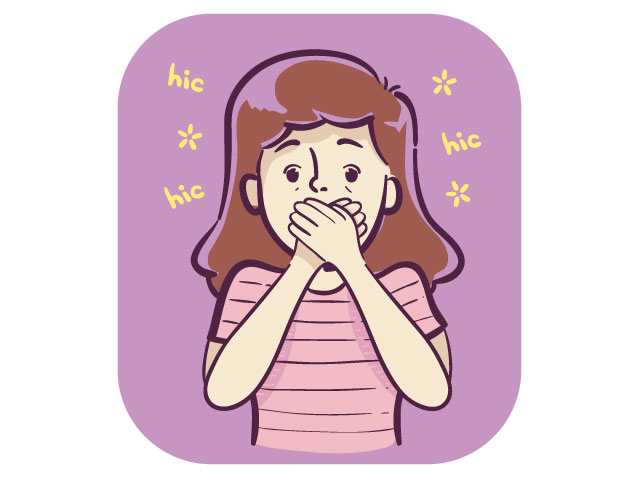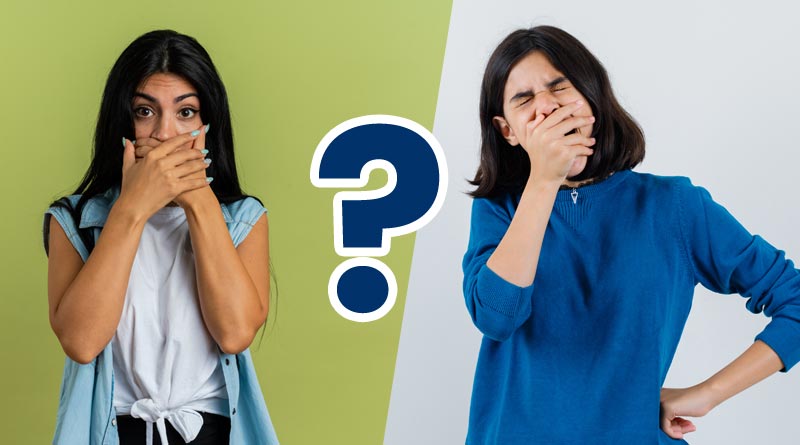Ever wondered why your body occasionally throws a hiccup party or prompts an impromptu yawn? These seemingly trivial yet utterly fascinating phenomena are your body’s way of communicating. Hiccups, those sudden gasps for air, are like spontaneous jazz notes played by the diaphragm. Meanwhile, yawns are your body’s gentle nudge, reminding you to take a luxurious breath. Embark on a trip into the science of hiccups and yawns, a dance led by muscles and reflexes. Ready for a fun exploration? Let’s start!
The Mechanism Behind Hiccups

“The diaphragm, a substantial muscle positioned just below the lungs and above the stomach, plays a vital role in respiration,” explained Dr. Sarah Thompson, a pulmonologist at Breathing Well Clinic. “It ascends to expel air from the lungs and descends to draw air in. While this process typically occurs without conscious effort, as we can simply breathe in and out, it is orchestrated by signals from the brain to the diaphragm.
At times, the brain instructs the diaphragm to descend with greater force than usual. This abrupt, involuntary contraction of the muscle induces the inhalation of air into the posterior region of the throat. Subsequently, the section of the throat proximate to the vocal cords promptly seals shut due to alterations in pressure, resulting in the distinctive sound known as a ‘hic.’ This phenomenon reflects the intricate interplay between neurological signals, muscular action, and respiratory dynamics.”
Why Do We Get Hiccups?
The diaphragm, a big muscle under your lungs and above your stomach, is crucial for breathing. It goes up to push air out and down to pull air in. Even though we usually don’t think about it, our brain tells the diaphragm what to do.
Sometimes, the brain tells the diaphragm to go down harder than usual. This sudden, automatic squeeze makes air go into the back of your throat. Then, the part of your throat near the vocal cords quickly closes because of the change in pressure, making the unique “hic” sound. This whole process is a complex interaction between signals from the brain, muscle movement, and how we breathe. It shows how our body coordinates different elements to create everyday actions like hiccupping.
The World’s Longest Hiccups

Did you know someone once held the title for the longest hiccup attack for a whopping 68 years? That’s right, Charles Osborne hiccuped from 1922 to 1990, according to Guinness World Records! That’s an estimated 430 million hiccups! While Charles’ hiccups were record-breaking in duration, Christopher Sands holds the record for intensity. From 2007 to 2009, Christopher hiccupped every two seconds for 12 hours a day! That translates to roughly 10 million hiccups over 27 months!
Hiccups aren’t just a modern annoyance, they’ve also sparked folklore throughout history. Some cultures believe hiccups mean someone is talking about you, while others have rituals to stop them – like trying to remember your friends until you hit on the one supposedly causing them to hiccup! Medieval folks even blamed mischievous elves for these involuntary spasms!
Ways To Stop Hiccups
- Hold Your Breath Upside Down: Take a deep breath, bend at the waist, and hold it as long as you can. This unique position can help stop hiccups.
- Swallow a Teaspoon of Sugar: Let a teaspoon of sugar dissolve slowly in your mouth, which can stimulate the vagus nerve and stop hiccups.
- Bite on a Lemon: Suck on a wedge of lemon or bite into it. The sour taste can interrupt the hiccup reflex.
- Gargle with Cold Water: Gargle with icy cold water to shock your system and put an end to hiccups.
- Hug Your Knees: Sit down, hug your knees to your chest, and lean forward. This compresses your diaphragm, often stopping hiccups.
- Drink Water Upside Down: While leaning forward, drink a glass of water from the opposite side of the glass (the far side). This can reset your diaphragm.
- Paper Towel Method: Place a single layer of a paper towel over a glass, then drink through the towel. This unique method might help stop hiccups.
- Tickle Your Palate with a Cotton Swab: Gently tickle the back of your throat with a cotton swab to stimulate the vagus nerve and halt hiccups.
- Eat a Spoonful of Honey: Swallow a spoonful of honey slowly. The thick texture might help stop hiccups.
- Breathe into a Paper Bag: Breathe in and out into a paper bag, but be cautious and stop if you feel dizzy. This technique may help regulate breathing and stop hiccups.
The Mechanism Behind Yawning

The act of yawning, although seemingly mundane, is a complex neurophysiological process governed by intricate mechanisms. Yawning involves a coordinated interplay between various physiological systems, primarily orchestrated by the brainstem. Initially, a triggering stimulus, often linked to factors like fatigue or drowsiness, prompts the brain to initiate the yawning reflex.
The jaw opens widely during a yawn, accompanied by a deep inhalation of air. This action serves to cool the brain, enhance alertness, and potentially oxygenate the bloodstream. The stretching of the jaw and surrounding muscles during a yawn may stimulate blood flow and nerve activity, contributing to the transient increase in alertness that often follows a yawn.
Why Do We Yawn?
We all yawn, but why? Science isn’t entirely sure, but there are some cool theories:
- Brain Freeze Fighter: One idea is that yawning acts like a built-in brain air conditioner. That big yawn and deep breath might bring in cooler air, helping to regulate your brain temperature.
- Wake Up Call: Another theory suggests yawning is nature’s way of giving us a little energy boost. The jaw stretch and deep breath could increase oxygen flow to the body and brain, making us feel more alert.
So next time you yawn, don’t stifle it! You might just be giving your brain a much-needed refresh. And who knows, maybe you’ll even spark a yawn in someone else – after all, yawns are super contagious too!
The World’s Longest Yawn

While Bella, the Pomeranian from Wisconsin, is said to hold a Guinness World Record for the longest recorded yawn at an impressive 23 minutes and 8 seconds, records for human yawns are less precisely documented. There is mention of David Rickert achieving a yawn lasting 6 minutes and 46 seconds on May 27, 1994, though the accuracy of this information is uncertain.
Interestingly, the record for the most yawns within specific time units, such as a day or a minute, remains elusive. It’s a whimsical challenge, as yawning is often involuntary and influenced by factors like fatigue or boredom. The notion that the record might occur during a business meeting or a webinar showcasing a needless software product adds a touch of humor to the quest for understanding and documenting the peculiar feats of yawning.
Ways To Stop Yawning
- The Power of Peppermint: Inhale the invigorating scent of peppermint essential oil to stimulate your senses and reduce yawning.
- Tongue Twisters: Challenge your mind by repeating challenging tongue twisters, engaging your brain and diverting your attention.
- Acupressure Magic: Apply gentle pressure to the space between your upper lip and nose, known as the philtrum, to alleviate yawning.
- Finger Flick Technique: Lightly flick your fingers against your face, particularly near your ears, to disrupt the urge to yawn.
- Cooling Neck Wrap: Place a cool cloth or neck wrap on your neck to promote alertness and discourage yawning.
- Mindful Meditation: Practice a brief session of mindful meditation to calm your mind and reduce mental fatigue.
- Hum a Tune: Humming a catchy tune can engage your vocal cords and distract you from yawning.
- Visual Puzzles: Solve a quick visual puzzle or brainteaser to activate your brain and stave off yawning.
- Gargle with Cold Water: Gargle with cold water for a refreshing sensation that can interrupt the yawning reflex.
- Balanced Posture: Maintain good posture to ensure optimal airflow, keeping you more awake and minimizing yawning.
The science behind hiccups and yawns unveils the fascinating workings of our bodies. For more such posts please visit our Health & Fitness section.



